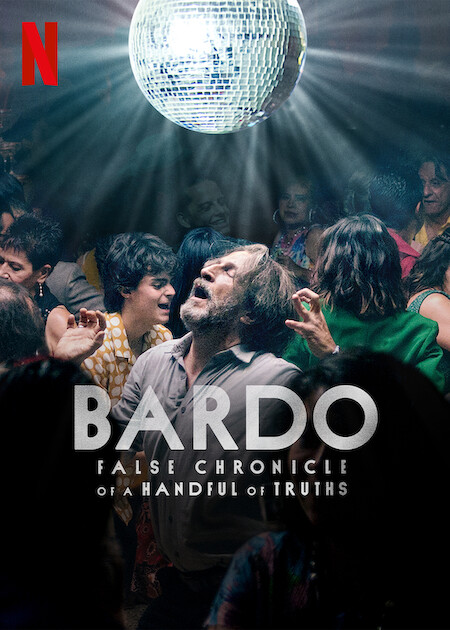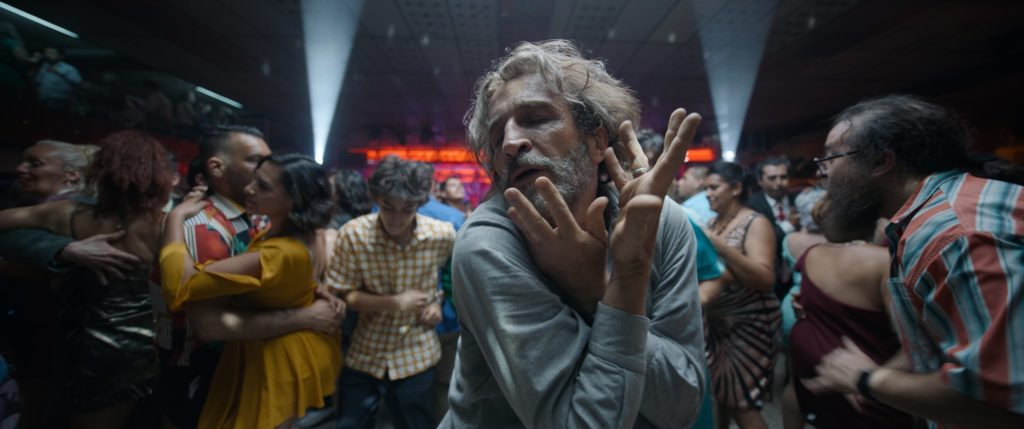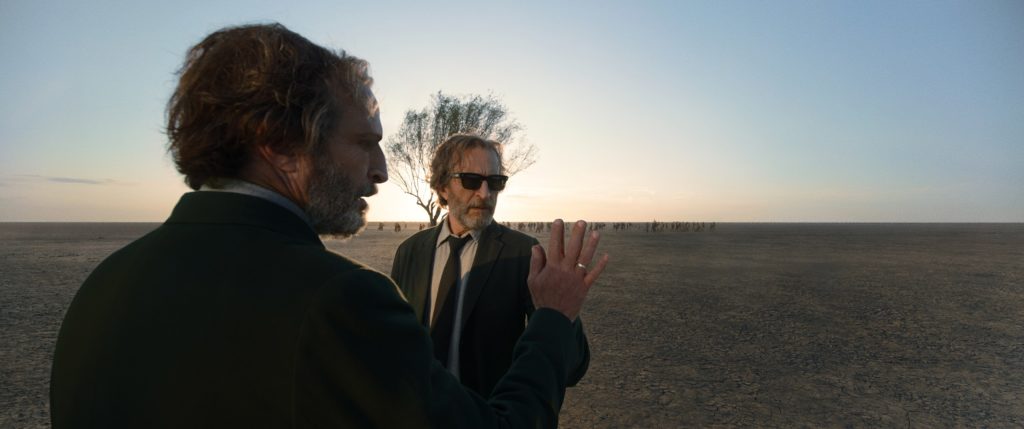
To think that we all experience the world the same way is foolish, since every person brings a slightly different perspective to all that they see and do. Yet there are some with highly divergent visions that don’t track with how many of their peers operate, and getting a window into that kind of worldview can be alternately fascinating and terrifying. In his latest film, the ambitious and lengthy Bardo: False Chronicle of a Handful of Truths, filmmaker Alejandro G. Iñárritu shares his larger-than-life look at one man staring down and processing his own mesmerizing existence.
Bardo opens with a shadow floating above a vast desert, running, going back up into the sky, and then landing again. As Lucia (Griselda Siciliani) gives birth to a baby, she is told that the baby has decided not to come out, so it is put back into her body. Lucia’s husband, Silverio (Daniel Giménez Cacho), is a journalist and documentary filmmaker from Mexico living in Los Angeles who is set to receive a prestigious American prize, the first Latin American to do so. As he prepares for the big ceremony, he is confronted by a series of surreal experiences, indicating little to no ability to distinguish between what is actually happening and what his mind – or the universe – has concocted.

This film’s first two scenes are among the wildest examples of this film’s unpredictable and incomprehensible nature. At its AFI Fest premiere, Iñárritu warned audiences not to try to make sense of it, a helpful instruction since logic seems almost entirely absent in this film. Yet that’s just as much an asset as an obstacle, productive in defining some of the film’s best moments, like how Silverio frequently slips into speaking only in his head, prompting those around him to ask him to please start talking using his mouth since they can’t stand when he does that.
Iñárritu, whose resume includes devastating emotional works like 21 Grams, Babel, and Biutiful, also has experience dealing with the inexplicable and spectacular, particularly in the film that won him his first three Oscars, Birdman. While it is unquestionably a head trip, there’s also so much to be gleaned from the way in which he frames scenes and treats Silverio as a constantly evolving protagonist, not always reliable as a narrator and seemingly unaware of his own shortcomings related to his perception of reality.

There are so many different things at play in Bardo, a film that switches from intimate family drama to large-scale historical reenactments with a touch of humor without warning. Among its most memorable scenes is one that finds Silverio confronting his dead father in a bathroom, and Silverio is suddenly shrunken down to the height of a child yet is still played by the sexagenarian Cacho. There’s no reasoning behind it, like so many other moments in the film, and that’s what makes it particularly riveting and surprisingly effective.
Cacho immerses himself in this performance, leaning into the film’s bizarreness and embracing it. He’s well-supported by a cast that also jives with the unusual and constantly-changing tone, all along for a wild ride that constantly travels in many differing directions. Since its debut at the Venice International Film Festival in September, Iñárritu has recut the film and shortened it to a still rather daunting two hours and thirty-nine minutes. Bardo is a unique, unconventional experience that manages to fluctuate from captivating to exhausting to just generally interesting and peculiar over the course of that long runtime, well worth a committed and attentive viewing, ideally in a theater to fully experience Iñárritu’s vision and Darius Khondji’s stunning cinematography.
Grade: B
Check out more of Abe Friedtanzer’s articles.
Bardo: False Chronicle of a Handful of Truths is currently playing in theaters and debuts on Netflix+ on Friday, December 16th.

